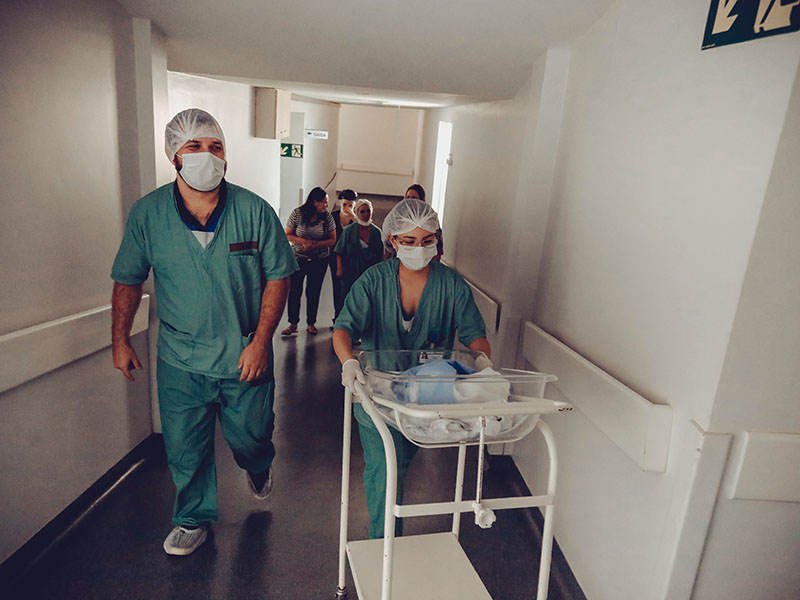The Covid-19 pandemic and training courses did not necessarily go well together. Many internships were cancelled. Hospitals and schools had to act quickly.
Hospitals and schools had to work hand in hand to plan all internships and manage this crisis as best as possible. The consequences were significant and Interneo was of great help.

The challenges of nursing internships during a pandemic
“In March, due to a decision by the Minister of Education, we had to cancel all of our hospital placements. They didn’t have enough protective equipment and couldn’t provide the security needed to accommodate the students.”
The students were left with the incomprehension that they could not help the already short-handed healthcare staff. Many wanted to help and answer the government’s call for volunteers, but the process was often too complicated.
The experience gained during this first wave allowed the health care institutions to better organize themselves in order to welcome the trainees again.
“After the Easter vacations the internships could resume but many hospitals did not want students in the field. Those that did accept, however, greatly reduced their quotas in order to comply with health measures.”
Hospitals gave priority to students in their last year who had to validate their internship to finalize their year or validate their diploma. Despite this, many traffic jams were created.
“By the fourth year, most of our students were well into their clerkship schedule and we didn’t have any problems placing them back. Some hospitals would not take the lower years and it was for the second years where there were the most cancellations in rotations.”
At ISEI, all students were able to complete their year, but at other institutions, the less fortunate had to renew their residency and extend their studies. This is causing a setback in the arrival of new caregivers in a market that is already experiencing a shortage of nurses.

Interneo: the solution for managing nursing internships during a pandemic
“In Interneo, at the beginning of the pandemic, we were able to easily cancel all internships that were scheduled, see how many spots were available at the hosting hospital, and reschedule without being in constant contact with ICANE. They have a view of our internship requests and how many interns are present at their location.”
Today, few schools and hospitals use digital solutions for internship scheduling. Yet, they are a great help on a daily basis to save time and in reducing workload.
“All the hospitals we work with use different tools. Having a single software for everyone would be easier to use and faster. Right now, we are forced to adapt and change the way we work depending on each facility.”



